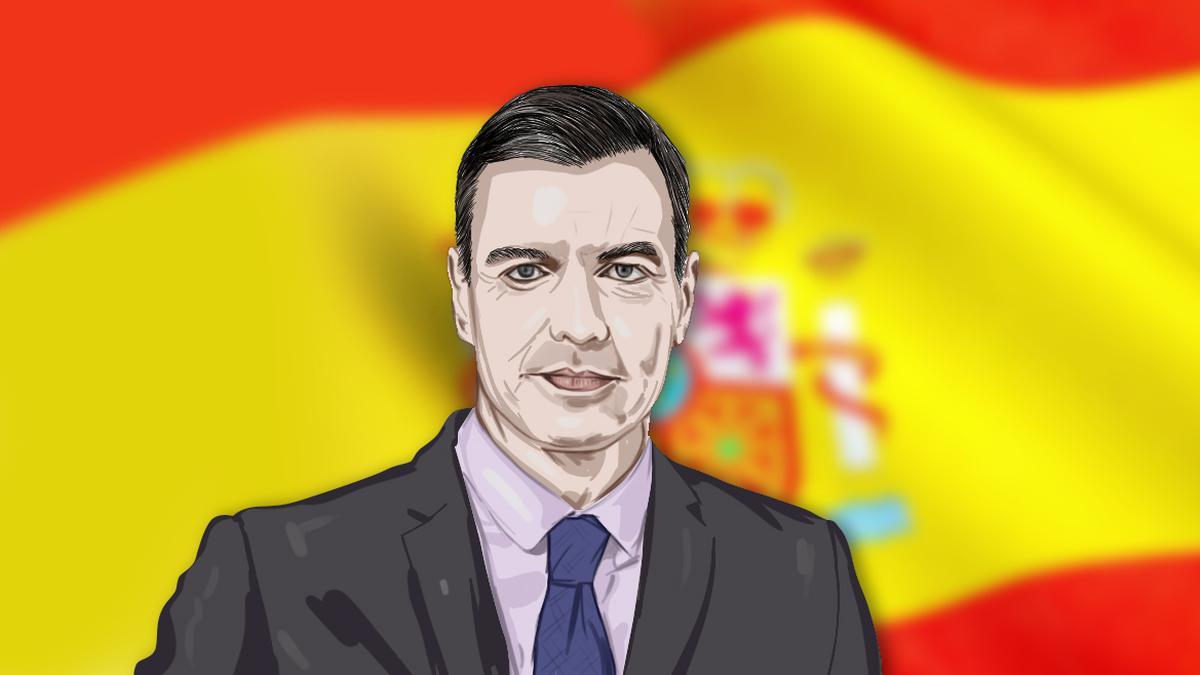
Pedro Sanchez | The comeback artist Premium
The Hindu
In Spanish politics, there is typically never a second chance for a frontline leader — once he is out, he is gone from the mainstream for good. But Prime Minister Pedro Sanchez proved, once again, why he has a formidable reputation as a master tactician and comeback artist.
When Spain’s Prime Minister Pedro Sanchez, 51, announced snap polls on May 29 — the general elections were due in November — not many believed he had a political future. His party, the centre-left Spanish Socialist Workers’ Party (PSOE), had suffered a drubbing in the regional and municipal elections. The conservative Partido Popular (PP) and its far-right ally Vox had swept the polls. In Spanish politics, there is typically never a second chance for a frontline leader — once he is out, he is gone from the mainstream for good. But Mr. Sanchez proved, once again, why he has a formidable reputation as a master tactician and comeback artist.
As per Spanish law, elections had to be held within 54 days of Parliament’s dissolution. This meant he had little time to reverse the political momentum, which was very much against his party. With elections scheduled on July 23, every opinion poll predicted a victory for the PP-Vox alliance. When the results came in, Mr. Sanchez surprised everyone.
Though the PP emerged as the single largest party with 137 seats and a 33.1% vote share, the PSOE did better than in the previous election in 2019, winning 121 seats and increasing its vote share from 28% to 31.7%. With neither of the big centrist parties winning a majority — 176 is needed in the 350-member Congress of Deputies — government formation would come down to who can cobble together a coalition.
With the Vox entering the government in several cities following the May regional polls, and the PP ready to play along with its ally’s far-right agenda — diluting progressive laws on gender violence, abortion, trans-gender rights, and so on — Mr. Sanchez took a bold gamble. One, he launched a campaign that played on the worst fears of what it could mean for Spain to be ruled by ‘fascists’, a reference to Vox. Two, his Labour Minister Yolanda Diaz helped unite the notoriously fractured left under a new left-wing alliance that included the left-wing populist Podemos, the Spanish Communist Party, and a number of regional progressive groupings. The PP-Vox alliance had benefited greatly from a split left vote. That wasn’t going to happen again. His campaign, centred on a binary between a moderate socialist government and a neo-fascist alternative, hit the mark. Not only did it help regain the votes of the centrists who had drifted to PP-Vox, it also galvanised the left-liberal voters to come out in larger numbers with the singular aim of keeping the Vox out of power.
Mr. Sanchez has been Prime Minister since 2018, first in an interim capacity, and after the November 2019 elections, as the leader of the left-wing coalition. Spain saw an anti-establishment, left-populist upsurge in the aftermath of the 2008 financial crisis, when the EU forced its socialist government to implement austerity policies. Ever the pragmatist, Mr. Sanchez selectively absorbed the rhetoric and politics of the populist left. He increased the minimum wage, hiked pensions, and as Europe battled a cost-of-living crisis, he kept inflation low by making short and medium-distance train journeys free. But he did resist housing/rent control reforms, leading to much bitterness with his leftwing allies.
Compared to the time he took over as Prime Minister, the Spanish economy is now healthier and growing at a good clip, unemployment rate is at its lowest since 2008, inflation is one of the lowest in Europe, and Spain is at the forefront of upholding civil and democratic rights. And yet, thanks to the influence of the Spanish version of Fox News, and the culture wars that Trumpian politics thrives on, it looked like Spain would witness another instance of a constituency voting against its political benefactor and economic interests. As things stand, the PP and Vox together do not have the numbers to form the government. And they cannot make up the numbers by signing up smaller, regional parties because for the latter, Vox is toxic. That leaves the road clear for Mr. Sanchez to form the government, but his numbers are such that he cannot form a government without the support of Catalan separatists, whose demands could be beyond what’s palatable to Mr. Sanchez’s party. If neither the PP nor the PSOE are able to form a government, Spain could go to fresh polls.
But if anyone can negotiate with the separatists and find a way to avoid that eventuality, it is Mr. Sanchez. After all, he stands alone among Europe’s socialist leaders in showing that it is possible to take on, and defeat, the right-wing juggernaut.













